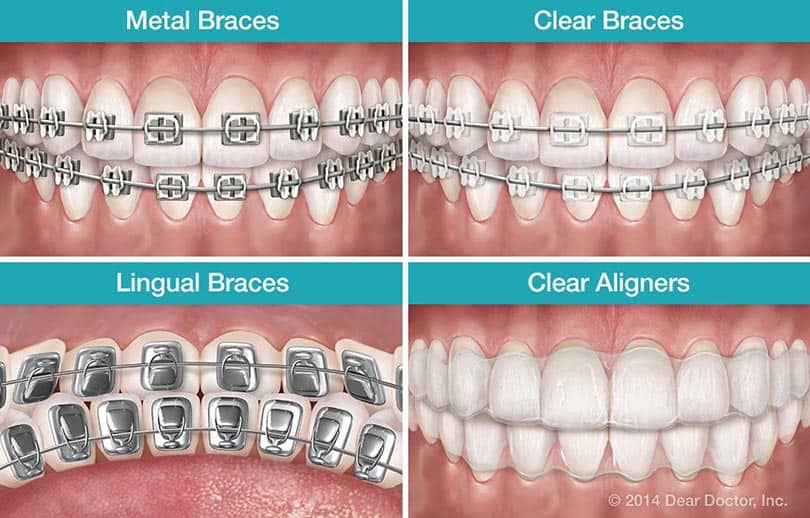The Ultimate Guide to Braces: What Your Dentist Wants You to Know

Image Source: Google
Introduction
Braces are a common orthodontic treatment that can help correct misaligned teeth and bite issues, leading to a healthier and more confident smile. If you or your child are considering getting braces, it's important to know what to expect and how to care for them properly. In this ultimate guide to braces, we will cover everything your dentist wants you to know about braces. Refer Link: https://thepinesdentaloffice.com/orthodontics-braces/.
Types of Braces
Metal Braces
- Traditional braces made of high-grade stainless steel
- Visible metal brackets and wires
- Most cost-effective option
Ceramic Braces
- Clear or tooth-colored brackets
- Less noticeable than metal braces
- Slightly more expensive than metal braces
Invisalign
- Clear aligners that are removable
- Almost invisible and more comfortable than traditional braces
- Can be more expensive and may not be suitable for all cases
Braces Care Tips
Brushing and Flossing
- Brush after every meal to prevent food particles from getting stuck in the braces
- Use a special orthodontic toothbrush and floss threader to clean around the brackets and wires
- Consider using a water flosser for better cleaning
Dietary Restrictions
- Avoid sticky, hard, or chewy foods that can damage the braces
- Avoid sugary foods and drinks that can cause tooth decay
- Eat soft foods like yogurt, mashed potatoes, and soups during the initial adjustment period
Regular Check-ups
- Visit your dentist or orthodontist regularly for adjustments and check-ups
- Report any discomfort, broken brackets, or loose wires immediately
- Follow the treatment plan provided by your orthodontist
Possible Side Effects
Discomfort
It is common to experience some discomfort or soreness after getting braces or after adjustments. Over-the-counter pain relievers and orthodontic wax can help alleviate the discomfort.
Difficulty Eating
It may take some time to adjust to eating with braces. Cut food into smaller pieces and avoid hard or crunchy foods that can damage the braces.
Mouth Sores
The brackets and wires of braces can sometimes irritate the soft tissues in the mouth, leading to sores. Rinsing with salt water or using orthodontic wax can help relieve the discomfort.
Aftercare
Retainers
- After braces are removed, retainers are usually prescribed to maintain the new position of the teeth
- Wear retainers as instructed by your orthodontist to prevent teeth from shifting back
- Clean retainers regularly to avoid bacterial buildup
Regular Dental Visits
- Continue to see your dentist for regular check-ups and cleanings
- Keep up with good oral hygiene habits to prevent dental issues in the future
- Discuss any concerns or questions about your dental health with your dentist
Conclusion
Braces can be a life-changing treatment that not only improves the alignment of your teeth but also your overall oral health. By following the advice in this ultimate guide to braces, you can make the most of your orthodontic treatment and achieve a beautiful, healthy smile. Remember to consult with your dentist or orthodontist for personalized guidance and care throughout your braces journey.